The Huron International Baccalaureate Diploma Program‘s Theory of Knowledge Exhibition this week is considered one of the most unique assessments for IB Diploma Candidates,
“The students have a tremendous amount of choice in this assignment to allow them to make connections between their developing thinking from their coursework to the areas that interest them most in the real world,” said Huron IB Facilitator (DP and CP) Carrie James. “Each student’s exhibition is unique to the way that they see knowledge in the world.”
During sixth and event hours, the Diploma Program juniors presented their exhibition to the Diploma Program seniors, which included a rotation with discussion and feedback.
Students were required to create an exhibition of three objects that connect to one of 35 IA prompts, such as: What counts as knowledge? Are some types of knowledge more useful than others? What features of knowledge have an impact on its reliability? On what grounds might we doubt a claim? What counts as good evidence for a claim? How does the way that we organize or classify knowledge affect what we know?
This is one of the two assessments unique to all IB Diploma Programs. IB learning values student inquiry at the core of the experience. This assessment gives students the choice of both the inquiry they pursue (with 35 different prompts to explore) and the way they demonstrate their understanding of knowledge concepts being seen in the world.
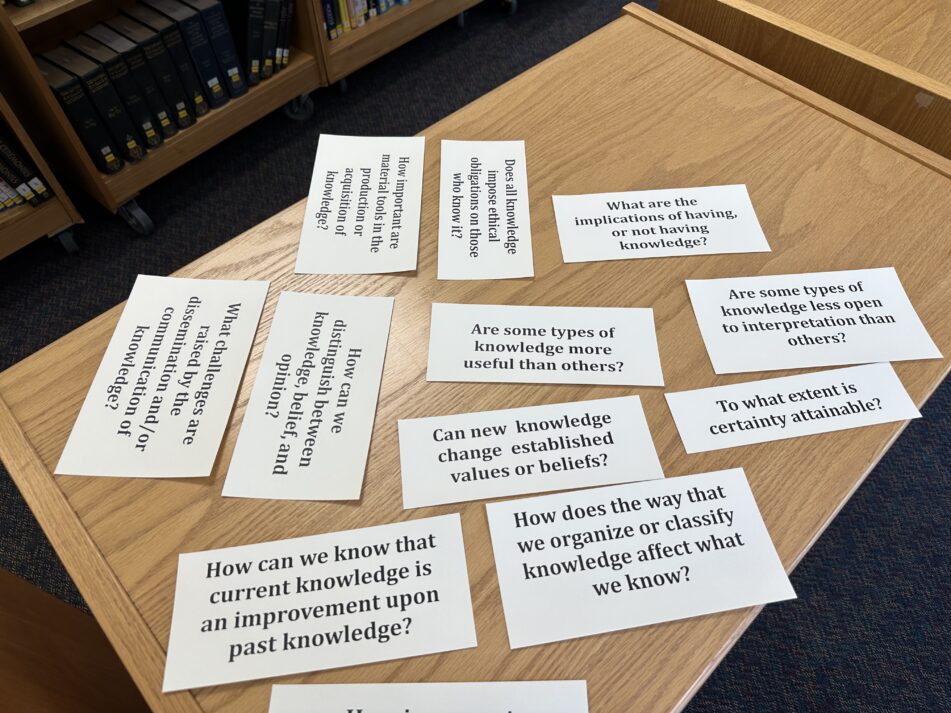
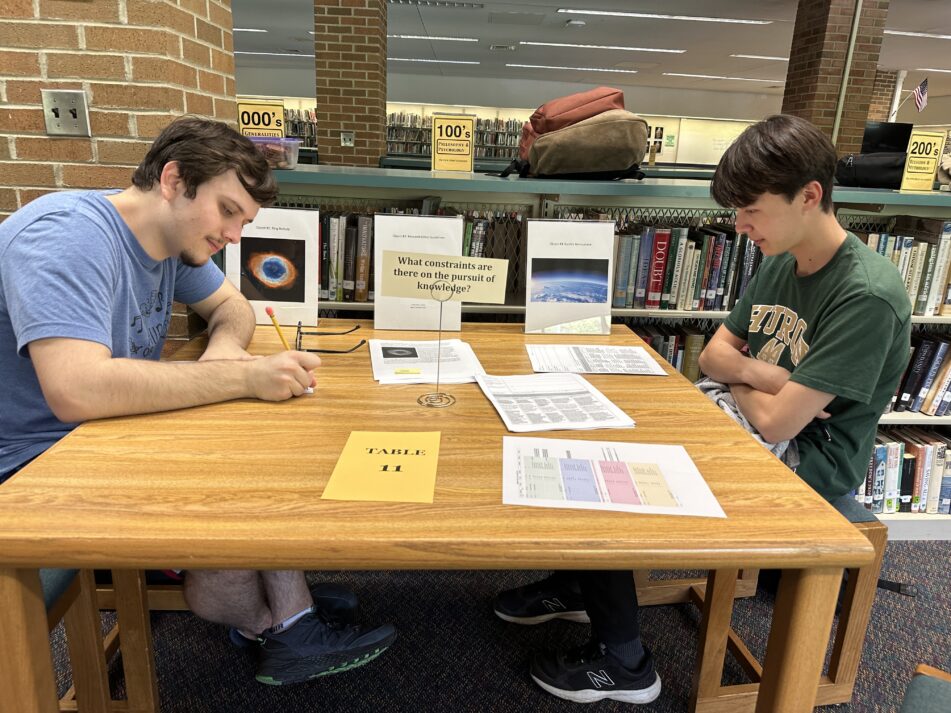
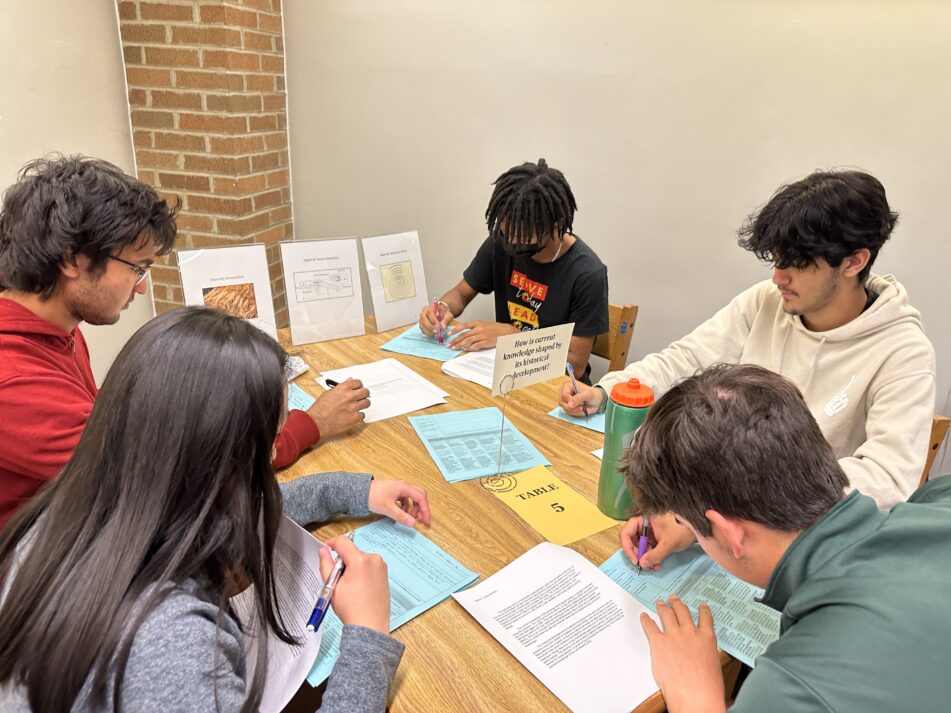
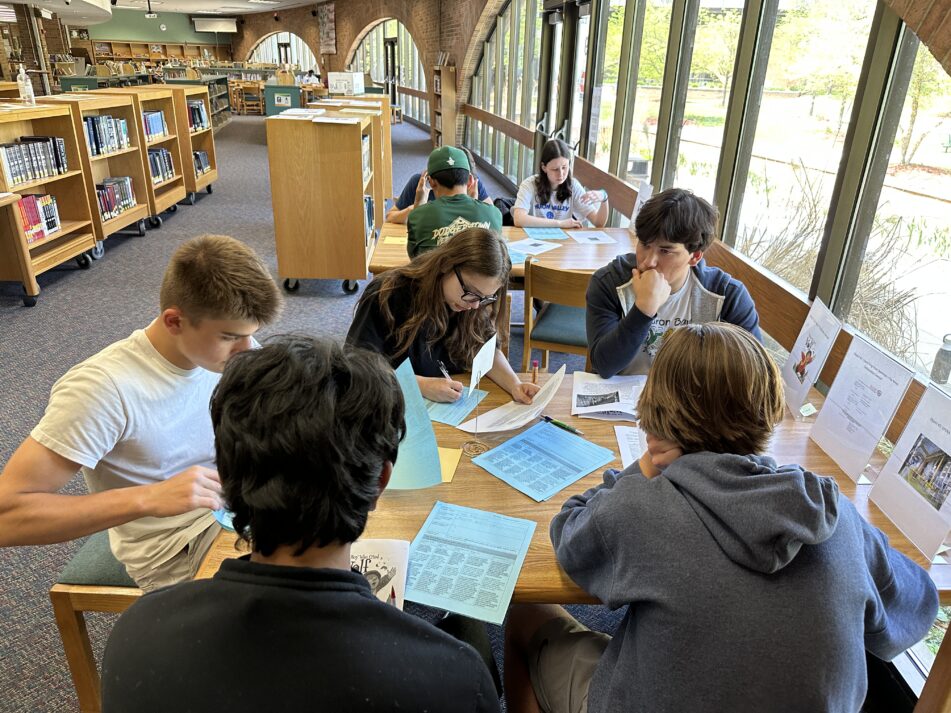
Theory of Knowledge teacher Dan Trevisan said the assessment transcends many conventional subject areas so that students— instead of thinking about more obvious functions an object has in its immediate context—consider the ways that object reflects or even influences various types of knowledge they have about the world they live in.
“So in a lot of ways, it’s somewhat general in its scope, but at the same time, it gives students a different level of thinking about some more typical academic engagement.”
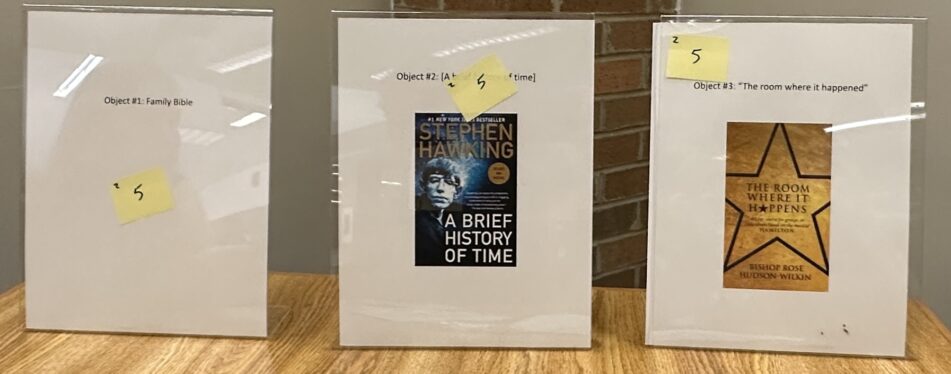
He said it provides students with opportunities to approach not only their academics but various aspects of their lives from different perspectives.
James, agreed, saying she hopes the students gain confidence in their own thinking.
“Teenage learners often want to find the answer,” she said. “This assessment—and many in our IB programming—does not have an answer, but rather students are creating their own answer to the question. In many cases, this is an early opportunity for students to formulate their own argument, defend it, and most importantly, present it to a wider audience. I hope that this audience beyond the classroom helps our students gain confidence that their own thinking is valid, supported, and presented clearly.”

Be the first to comment